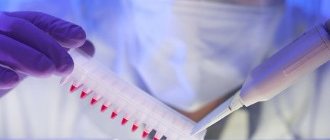Analogs
Level 4 ATC code matches: Khairabesol
Noflux
Lancid
Barol
Beret
Ontime
Gastrozol
Omeprazole
Pantoprazole
Proxium
Lansoprazole
Zulbex
Ultop
Epicurus
Pariet
Losek MAPS
Losek
Sanpraz
Emanera
Omez Insta
Ortanol analogues: Omez , Gasec , Loseprazole , Omelik .
Many people are interested in Orthanol or Omez - which is better? It all depends on the human body.
Orthanol price, where to buy
The average price of a heartburn remedy in Russia is 145 rubles.
The price of Orthanol in Ukraine is 95 UAH.
- Online pharmacies in RussiaRussia
ZdravCity
- Orthanol capsules 20 mg 28 pcs. Lek dd
RUB 133 order - Orthanol capsules 20 mg 14 pcs. Lek dd
100 rub. order
- Orthanol capsules 10 mg 28 pcs. Lek dd
RUB 173 order
Orthanol
Orthanol ®
(lat.
Ortanol ®
) is an antiulcer drug, a proton pump inhibitor, which reduces gastric acidity.
Dosage forms of Orthanol
The active ingredient is Orthanol omeprazole (Latin omeprazole
). Three variants of Orthanol are available in Russia:
- Orthanol in capsules containing 10 mg of omeprazole (the body and cap of the capsules are light pinkish-brown, with the black inscription “OME 10” on the body and cap)
- Orthanol in capsules containing 20 mg of omeprazole (the body and cap of the capsules are white, on the body and cap there is a black inscription “OME 20”)
- Orthanol in capsules containing 40 mg of omeprazole (white cap, light pinkish-brown body, black inscription “OME 40” on the body and cap)
Previously, a dosage form of “capsules soluble in the intestines” was also produced; each such capsule contained 20 mg of omeprazole.
Pharmacological properties of Orthanol
Orthanol (omeprazole) is an antisecretory drug that suppresses gastric secretion. Orthanol inhibits the proton pump H+-K+-ATPase in the parietal cells of the stomach and thereby blocks the final stage of hydrochloric acid secretion. This leads to a decrease in the level of basal and stimulated secretion. After oral administration of Orthanol, the antisecretory effect occurs within the first hour and persists for 24 hours, the maximum effect is achieved after two hours. When the intake of Orthanol is stopped, secretory activity is completely restored after 3-5 days.
Professional medical publications concerning the treatment of gastrointestinal diseases with Orthanol
- Khavkin A.I., Zhikhareva N.S. Clinical experience with the use of omeprazoles from different manufacturers // Application of Consulium Medicum. Gastroenterology. 2012. No. 2. pp. 72–75.
- Morozov S.V., Kucheryavyi Yu.A. Treatment of patients with non-erosive form of gastroesophageal reflux disease. Modern view of the problem // Attending Physician. 2013. No. 7. pp. 32–41.
On the website gastroscan.ru in the literature catalog there is a section “Omeprazole”, containing articles relating to the treatment of diseases of the gastrointestinal tract with omeprazole.
Pharmacokinetics and pharmacodynamics of Orthanol
Pharmacokinetics and pharmacodynamics, as well as the interaction with other drugs of orthanol and the occurring effect of “omeprazole resistance” are determined by the active substance - omeprazole and are described in the article “Omepraloz”.
Indications for use of Orthanol
- exacerbation of gastric and duodenal ulcers
- erosive-ulcerative esophagitis
- peptic ulcers that developed while taking non-steroidal anti-inflammatory drugs
- stress ulcers
- Zollinger-Ellison syndrome, systemic mastocytosis
- erosive and ulcerative changes in the upper gastrointestinal tract that developed in patients with liver cirrhosis
- eradication of Helicobacter pylori
as part of complex therapy - anti-relapse treatment of patients with duodenal and gastric ulcers, prone to frequent exacerbations and the development of complications
- anti-relapse treatment of gastroesophageal reflux disease.
The dosage form of Orthanol - capsules containing 10 mg of omeprazole, is intended for the systematic treatment of heartburn that occurs at least twice a week, other manifestations of gastroesophageal reflux, and flatulence.
Method of administration of Orthanol and dose
Orthanol capsules are recommended to be taken in the morning (regardless of meals); the capsule should be swallowed whole, without chewing or dissolving, with liquid. In the absence of special prescriptions from a doctor, the following approximate doses are recommended:
- Duodenal ulcer - 20 mg of Orthanol (hereinafter calculated by the amount of omeprazole) per day for 2-4 weeks (in resistant cases up to 40 mg of Orthanol per day)
- Stomach ulcer - 20 mg Orthanol per day for 4-6 weeks (in resistant cases up to 40 mg Orthanol per day).
- Erosive-ulcerative esophagitis - 20-40 mg of Orthanol per day for 4 weeks; in case of severe disease, the course is extended to 6-8 weeks.
- Anti-relapse treatment of duodenal and gastric ulcers - 20 mg of Orthanol per day. Anti-relapse treatment of gastroesophageal reflux disease - 20 mg Orthanol capsule per day for a long time (up to 6 months).
- Zollinger-Ellison syndrome - the dose of Orthanol is selected individually depending on the initial level of gastric secretion, usually starting from 60-80 mg per day, a dose of 80 mg or more is divided into two doses. Treatment is effective if it is possible to achieve a reduction in the level of gastric secretion to 10 mmol/hour and below.
- Eradication of Helicobacter pylori
as part of regimens with antibiotics or bismuth-containing drugs.
Self-treatment of heartburn and other symptoms of gastroesophageal reflux disease with 10 mg capsules
The over-the-counter dosage form - capsules of 10 mg of omeprazole is intended for self-treatment of patients with systematic heartburn and other symptoms of GERD. It is important that one-time heartburn is not cured by orthanol. The initial dose of Orthanol in capsules of 10 mg is 2 capsules once a day. If symptoms disappear, the dose can be reduced to one capsule per day. The maximum daily dose of Orthanol is two capsules. The lowest effective dose should always be used. The maximum course of treatment is two weeks. If symptoms do not improve during this time or if they worsen, you should consult a doctor. The capsule should be swallowed whole with sufficient liquid. Orthanol in daily doses of up to 20 mg fully meets the requirements for over-the-counter drugs. It is well tolerated and has a low risk of serious adverse events in its patient population. Isolated adverse events that occur during treatment with omeprazole in low doses are moderate in severity. The use of the drug Ortanol does not cause undesirable effects, the possibility of which has been described with long-term use of PPIs in high daily doses, for example, in the treatment of erosive GERD. The release form of the drug Ortanol provides a different number of 10 mg capsules per package. This was done to allow maximum individualization of heartburn treatment depending on the degree of its manifestations in a particular patient. People with severe heartburn, who may require a starting dose of 20 mg per day, will therefore need more capsules per pack. When symptoms begin to subside, the dose used for treatment can be reduced to 10 mg per day, which requires fewer capsules. It should be noted that the patient should not take Orthanol on his own for more than 14 days and that a new 14-day course of treatment can be carried out no earlier than after 4 months. If heartburn persists within 14 days of using the drug Ortanol or recurs a few days after stopping its use, the patient should consult a doctor for advice on further treatment and the need for examination, so as not to miss organic pathology (Pchelintsev M.V.).
Contraindications to Orthanol therapy
- hypersensitivity to omeprazole.
Use of Orthanol by pregnant women, breastfeeding and children
Before using Orthanol during pregnancy, it is recommended to consult a doctor.
Omeprazole passes into breast milk. If Ortanol therapy is necessary for a nursing mother, breastfeeding should be stopped.
Orthanol is not recommended for children under 18 years of age.
Cautions when using Orthanol
In the presence of any alarming symptoms (for example, significant spontaneous weight loss, frequent vomiting, dysphagia, hematemesis, or melena), as well as in the presence of a gastric ulcer (or suspected gastric ulcer), the possibility of malignancy should be excluded, therefore in these cases before the start and after the end of treatment, endoscopic monitoring is required to exclude malignant neoplasms, because
treatment with Orthanol may mask symptoms and delay correct diagnosis. In patients with severe liver failure, the dose of Orthanol should not exceed 20 mg. There is information about an increased risk of hip, wrist and spine fractures with long-term use or high doses of proton pump inhibitors, which include Orthanol (“FDA warning”).
In the countries of the former republics of the USSR, omeprazole is widely represented by generics, the prices of which are much lower than the prices of original drugs, and this often determines the patient’s choice of drug, especially for long-term use. Due to possible differences in the quality of drugs, an objective assessment of their effectiveness is required. Currently, an objective and accessible method for testing antisecretory agents in clinical practice is 24-hour intragastric pH-metry (Alekseenko S.A.).
Side effects of Orthanol
Orthanol is well tolerated by patients. When treated with Ortanol, in rare cases, the following, usually reversible, side effects may occur:
- from the digestive system: diarrhea or constipation, abdominal pain, dry mouth, taste disturbances, stomatitis, transient increase in the activity of liver enzymes in plasma
- from the nervous system: headache, dizziness, agitation, drowsiness, insomnia, paresthesia, in predisposed patients - depression and hallucinations
- from the musculoskeletal system: muscle weakness, myalgia, arthralgia.
- skin reaction: skin rash, urticaria, erythema multiforme
- other: visual disturbances, peripheral edema, increased sweating, fever
General information
Orthanol in capsules containing 10 mg of omeprazole is available without a prescription, 20 and 40 mg - with a prescription.
Orthanol does not affect driving. According to the pharmacological index, Orthanol belongs to the group “Proton pump inhibitors”. For ATC - to the group “Proton pump inhibitors”, code A02BC01.
Manufacturer Orthanol:
Lek, Slovenia, a division of the multinational company Sandoz, specializing in the production of generics, whose headquarters are located in Germany and Switzerland, in turn a subsidiary of Novartis, Switzerland.
Other medicines containing the active ingredient omeprazole
. The following drugs are or were previously registered in Russia: Bioprazole, Vero-Omeprazole, Gastrozole, Demeprazole, Zhelkizol, Zolser, Chrismel, Lomak, Losek, Losek MAPS, Omegast, Omez, Omez Insta, Omecaps, Omepar, Omeprazole, Omeprazole pellets, Omeprazole -AKOS, Omeprazole-Acri, Omeprazole-E.K., Omeprazole-Richter, Omeprazole Sandoz, Omeprazole-FPO, Omeprazole-OBL, Omeprazole-Teva, Omeprol, Omeprus, Omefez, Omizak, Omipix, Omitox, Ortanol, Otsid, Pepticum , Pleom-20, Promez, Risek, Romesek, Sopral, Ulzol, Ulkozol, Ultop, Helitsid, Helol, Cisagast.
Orthanol has contraindications, side effects and application features; consultation with a specialist is necessary. Back to section





